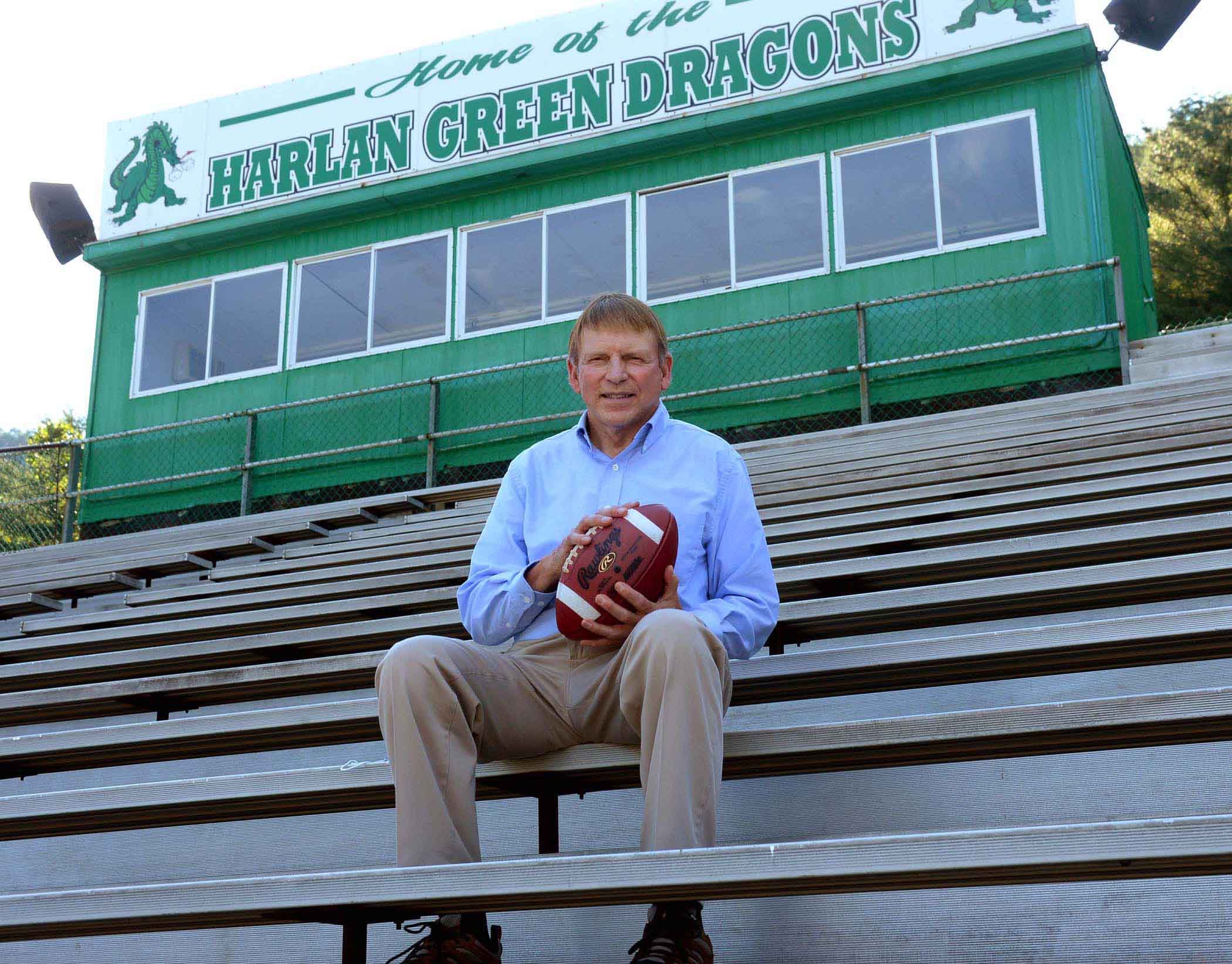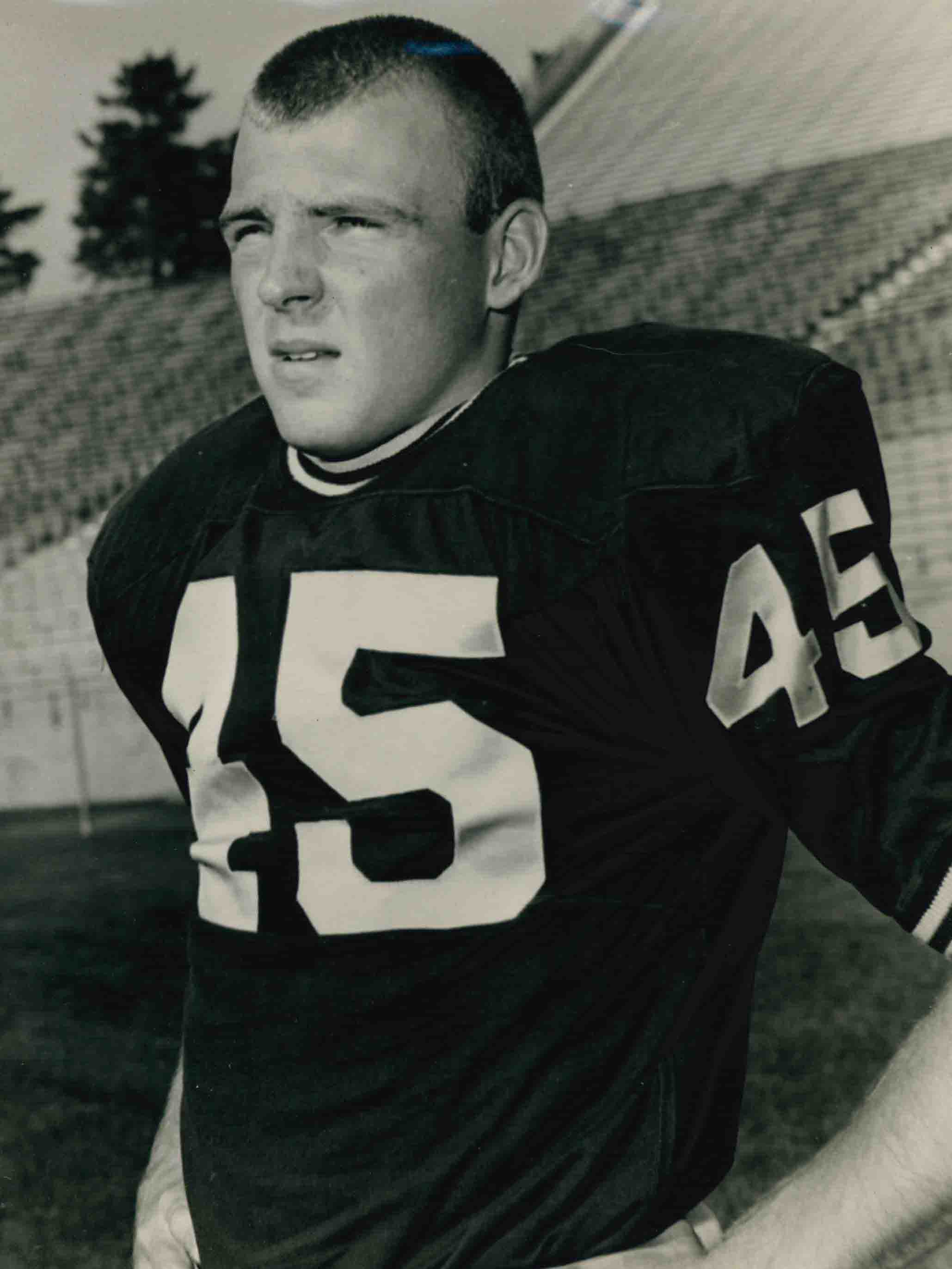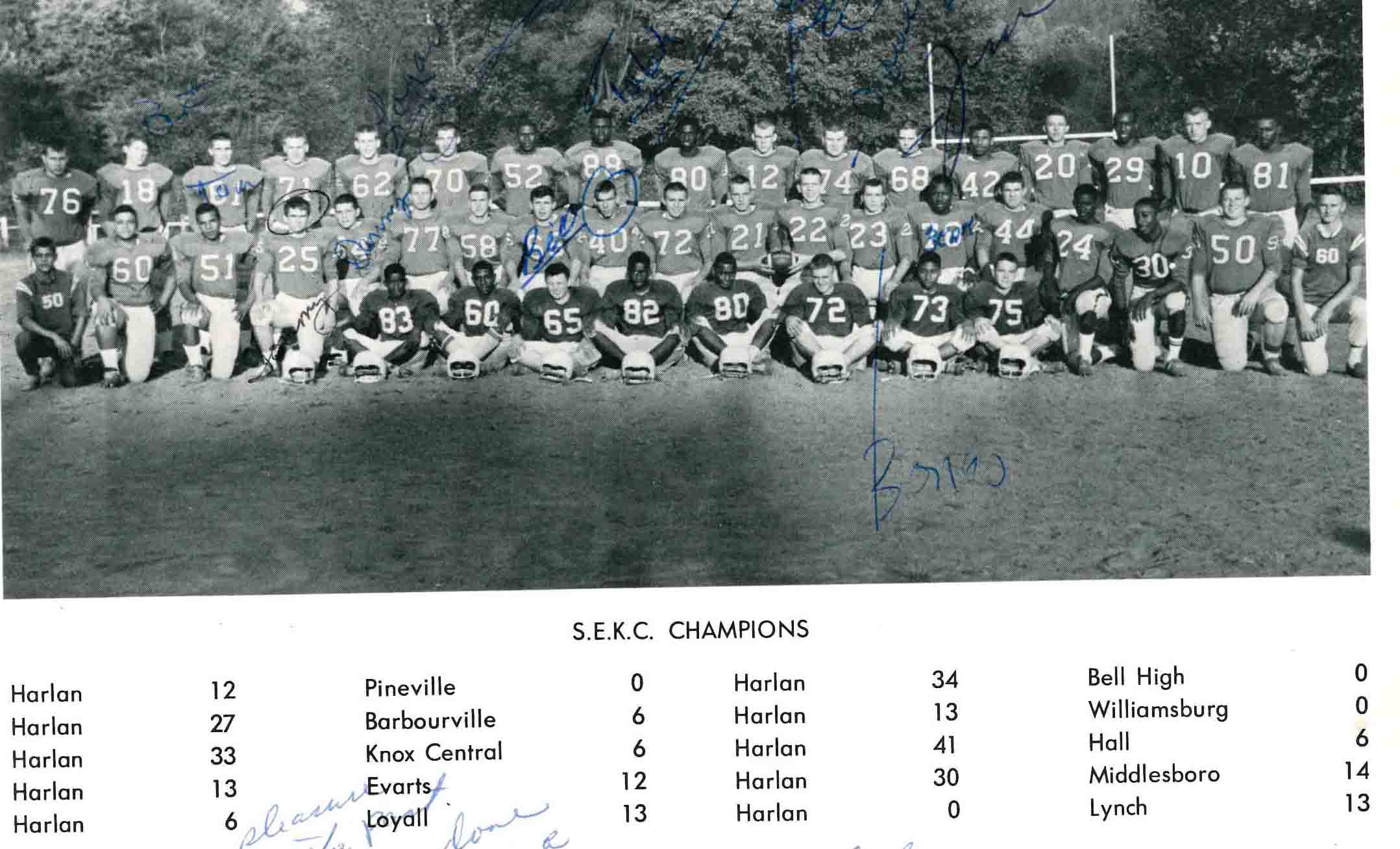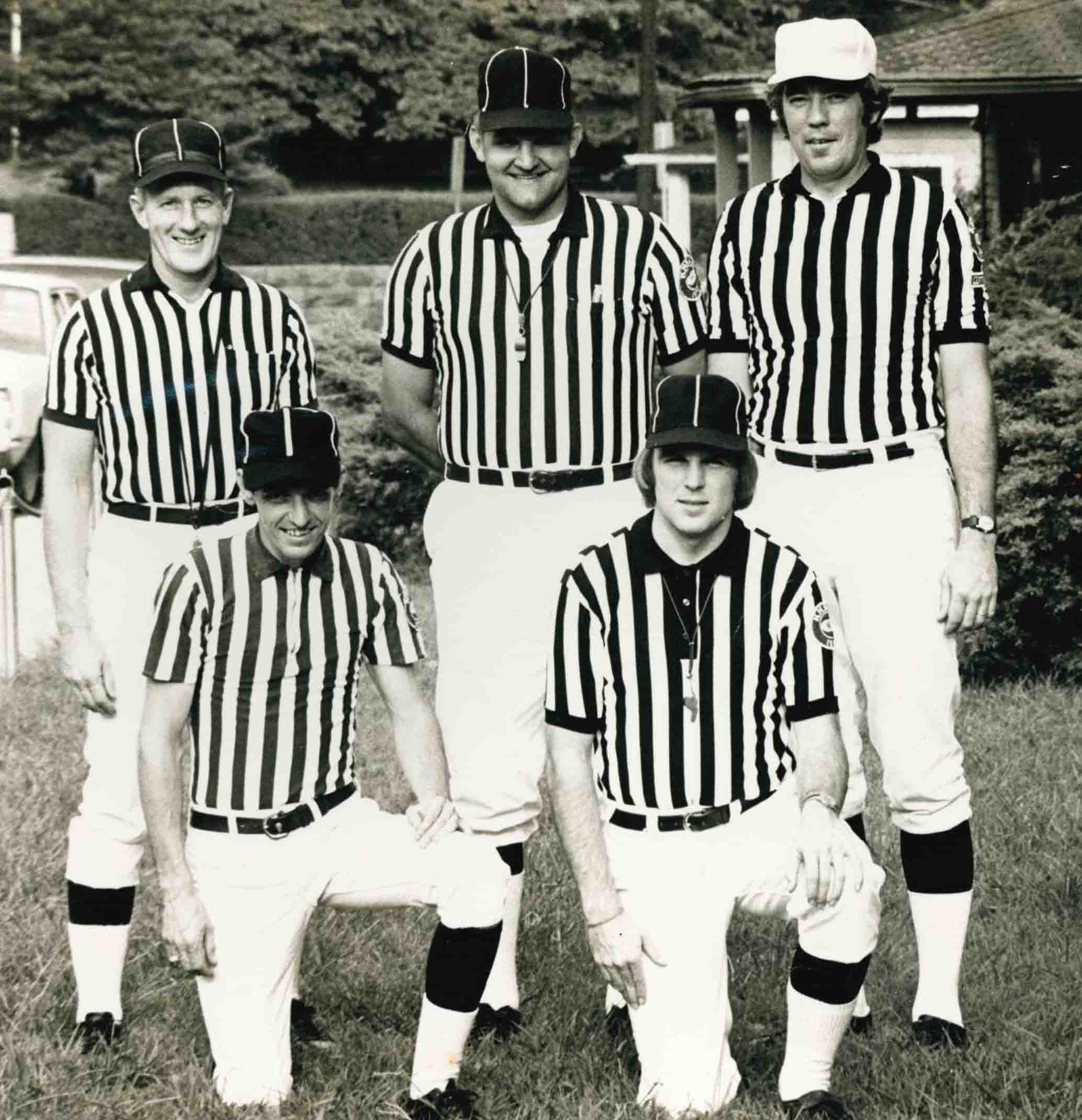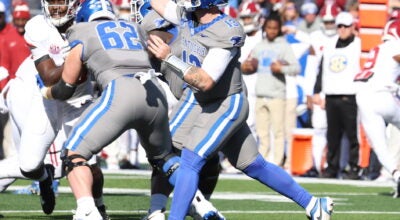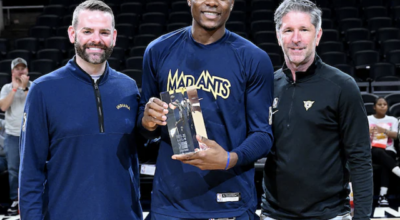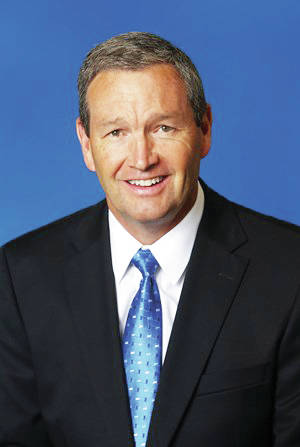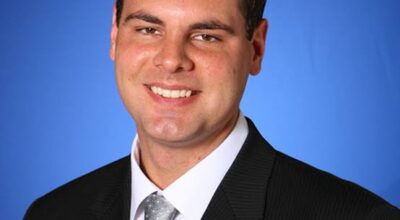Guy glad he found his way back home after college days at Purdue
Published 11:29 am Thursday, September 3, 2020
|
Getting your Trinity Audio player ready...
|
By John Henson
Contributing columnist
Newton Samuel Guy III, better known as Dr. Guy or N.S. for generations of his dental patients, didn’t realize how much he liked his hometown of Harlan until he moved away after high school to play football at Purdue.
“My teammates and friends would come home with me for holidays and in the summer and they loved it. That’s all they would talk about. It was like I lived in Mayberry,” said Guy. “I would go to a big city like Chicago or Indianapolis with them, and it wasn’t the same. I was like most young people who talk about moving away, but that did make me start to think about coming home.”
Guy did indeed return home after completing dental school at the University of Kentucky in 1971 and he never left again. As he sat in his office on Mound Street, Guy reflected back over a career that will have spanned 50 years in June.
Carrying on his love of football, which was what originally took him to Purdue, has been part of Guy’s life since before he came back home. He started working as a football official while at UK and continued when he moved into his first office at Browning Acres, just behind Denny Ray’s restaurant, before bypass construction in 1979 eventually led him back to downtown.
Guy marked his 50th anniversary as a high school football official in 2017 and remains certified even though he’s sat out the last two years following knee surgery. He also worked 20 years as a college official in the Mid South and Ohio Valley conferences.
“If you want to stay with something you love in sports, officiating is a way to stay a part of it in a different way,” Guy said. “I hope more young people who love sports will consider officiating as a hobby. It’s very much a part of my life and some of my best memories and best friends come from being an official.”
After growing up in the Mary Helen coal camp, where he lived through the fifth grade with his parents, N.S. Guy Jr. and Bette Shannon Guy, and his sister, Elizabeth Guy Forester (a former teacher who is now a Presbyterian minister in North Carolina), Guy moved to downtown Harlan when his father lost his job as a bookkeeper at the Mary Helen Coal Company.
“That was a great place to be a kid. The community really did help raise you then because if you did anything wrong you can be sure someone would tell your mom and dad,” he said.
Guy also enjoyed the next seven years in Harlan, where he remained through high school.
“I had a paper route and lots of friends. The 1950s and early 60s were just a great time to grow up,” he said.
Guy soon discovered the game that would be a big part of his life, beginning with a chance meeting with county coaching legend Doyle Trouman.
“I think I was walking home and ran into coach Troutman,” he said. “He wanted me to show him my hands. He told me they would try me at quarterback since my hands were so big. That made me happy because that’s what I always wanted to play.”
Guy played with the “Baby Dragons” as a seventh-grader in the days before there was middle school football. He spent most of that first season practicing and learning the game, before being promoted to the high school team as an eighth-grader.
“Bill Glen Fortney and I were the only two eighth-graders to move up,” Guy said. “We mainly just practiced and sat on the bench, but it was a good learning experience.”
Guy’s days on the bench came to an end as a sophomore when he took over as the starter midway through the season. The Dragons finished 4-6 that season, but improved to 7-3 in 1962 and 8-2 in 1963 when they won the Southeastern Kentucky Conference championship.
Harlan legend Tommy Ward, who coached football for seven years before eventually moving up to a job as principal, was Guy’s coach.
“He was admired and revered almost by everyone,” Guy said. “Coach Ward was a total gentleman. I can’t recall him ever saying a curse word. It seemed everyone looked up to him and respected him.”
Only one team per district made the playoffs in the early years of postseason play and that team was usually Lynch. The Golden Bulldogs won state championships in 1959 and 1960, the first two years of high school playoffs in Kentucky, then won a third state title in 1963.
“We lost to Lynch and Loyall my last two years,” Guy said. “The quality of football in the county then was very good. There were so many great players in those years. The competition was fierce.”
Guy and his classmates also experienced a major social shift heading into their senior year of 1963-64 when integration led to all the black schools across the state closing, including Rosenwald.
“We knew each other and for the most part wanted the chance to play together,” Guy said. “Some older people may have not liked the idea, but all of us in high school at that time got along very well. The adults were concerned about issues, but the kids did fine. It was a special time. We were blessed to have a chance to play with the athletes from Rosenwald my senior year.”
Integration paid off in a 13th Region Tournament title in basketball as the Dragons, led by Charlie Rutledge and Charles Tabb, advanced to the state tournament where they fell to Seneca and future NBA star Wes Unseld.
Even though the Dragons rarely threw the ball in those days, like most high school teams of that era, Guy drew the attention of several college coaches, including Duke and Eastern. He hadn’t considered Purdue until meeting Verle Campbell, a member of the athletics board of the college who watched Guy play and asked if he’d be interested in the Boilermakers.
“I don’t even remember who we played, but he asked me where I was going to school,” Guy said. “I told him I wanted to be an engineer and my choice now is Georgia Tech. He told that Purdue had a fine engineering school and that he could help me with football if I was interested.”
Guy visited and decided to attend after talking with coach Jack Mollenkopf. Guy didn’t know at the time that he was arriving at the West Lafayette school in Indiana during a golden era, due in large part to a quarterback on the roster who would later become famous. Bob Griese was a three-sport standout, starting at guard in basketball and compiling a 12-1 record on the mound in one season. He was a two-time All-American in football and is considered one of the school’s all-time great players, finishing eighth in the Heisman Trophy voting as a junior and second behind Steve Spurrier as a senior in 1966. He went on to lead the Miami Dolphins to a pair of Super Bowl championships under Don Shula in the 1970s. Mike Phipps followed at quarterback and went on to play 12 years in the NFL for Cleveland and Chicago. Running back Leroy Keyes earned All-American honors in both 1967 and 1968.
As a member of the freshman team, in the days before freshmen were able to compete on the varsity level, Guy practiced all season against the starters as a member of the scout team. He said he made several lifelong friends at Purdue, including Robert Yunaska, whose daughter Lara, is married to Eric Trump, the son of the president.
After a meeting with an ROTC official at Purdue in a class he had in his freshman year at the school, Guy thought about moving on to West Point and perhaps playing for the Army while attending school. Guy eventually decided to return to Purdue but gave up football. He was at Purdue in 1966 when the Boilermakers finished second in the Big 10 and went on to edge USC 14-13 in the Rose Bowl. Purdue won the Big 10 the following season but did not play in a bowl game.
Even though he considered joining the Marines, Guy was accepted into dental school at the University of Kentucky after three years at Purdue and spent the next four years at UK before opening his practice at Harlan in 1971. He also worked in the coal mining industry during summers home from college and continued in the industry well into the 1980s while working as a dentist.
Guy eventually married Debbie Gallagher, whose brother, Jack, was a football star at Cumberland in the late 1950s in the same backfield with Ron Cain, and they had two children. Samuel Gallagher is now 42 and lives in Lexington. Sarah Elizabeth is 40 and lives in Las Vegas.
Guy traveled quite a bit as an official and also enjoyed some adventures with Fortney, his former high school football teammate. Fortney was a well-known photographer for many years and took Guy with him for a couple of unforgettable photo shoots with NFL legends — Johnny Unitas in Baltimore and Roger Staubach in Dallas. Guy took a book he had as a child about Unitas and the Baltimore quarterback autographed it and posed for a photo at Unitas’ restaurant, The Golden Arm. He remembers sharing donuts with Staubach in the Cowboys’ dressing room.
After considering several careers in his Purdue days, including being a chemical engineer or going into the Marines, Guy chose dentistry because it meant he wouldn’t have to be on the road continually for his job. A half century after making that decision, Guy has no regrets.
“I got to come home,” he said. “I was able to live here and raise my family here.”


